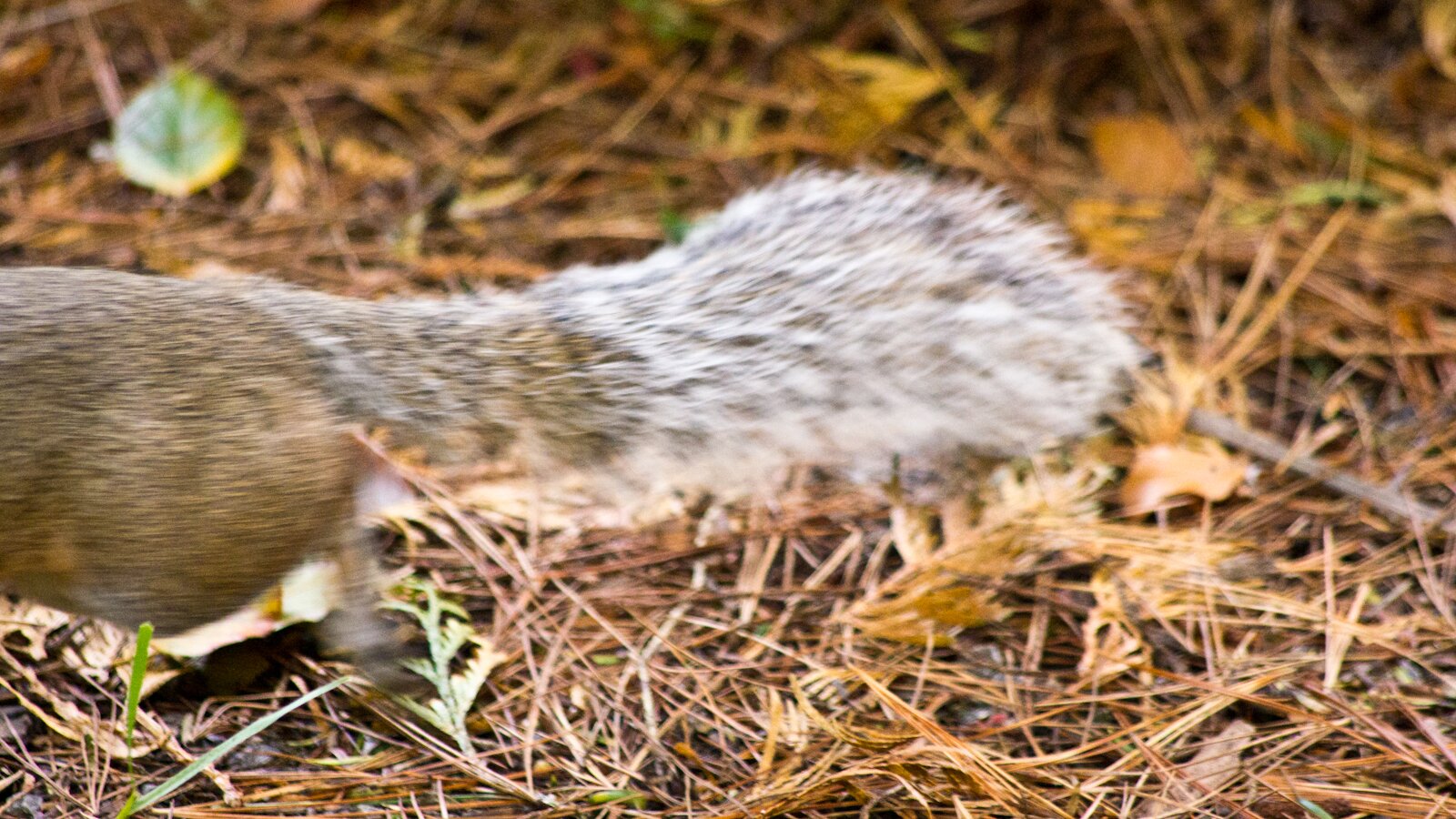People turn to the Seattle Times for many things, but not usually for instructions on how to cook and eat squirrels. The reaction in the comments section is varied, but quite a few are not troubled so much by the idea of “eastern gray squirrel braised in Lopez Island white wine with mushrooms and Italian-style rice,” as they are by the cook’s drowning of the squirrel.
As is often the case with trend pieces, the alternative press got there first. The Stranger‘s Brendan Kiley published his account of trapping and eating (“with potatoes and white wine”) a squirrel back in 2006, in “The Urban Hunt.” Kiley shot his squirrel to death with an air pistol.
His piece on foraging small game included his attempts to kill and dine on rabbit, pigeon, rat, slug, duck, goose, in addition to the previously mentioned squirrel. To his credit, he also lays out guidelines for what’s allowed:
You can’t discharge a firearm in the city limits. An air pistol is not a firearm, but shooting it in public still constitutes reckless endangerment. Then there are the game violations (for geese and ducks) and animal-cruelty laws. Drowning vermin in traps, a common method for homeowners and building managers, is considered a “process” and therefore cruel. Shooting them in the head is not, but in most cases shooting is illegal anyway.
Game violations for hunting geese are a case of “Do as I say, not as I do,” so far as the government is concerned. Between 200 and 2001, the USDA’s Wildlife Services gassed over 7,000 Canadian geese; later protests put the kibosh on the operation, which was undeniably successful in reducing geese poop on park lawns and beaches.
Washington Department of Fish and Wildlife spokesperson Craig Bartlett explains that squirrels fall into, in layman’s terms, the “pest” category, “like a mole,” he says. If you trap one on your property, what you do with it is largely up to you and your conscience. He cautions that the Eastern gray squirrel is an introduced species, while the red and Western gray are natives.
Even with pests, though, gripping traps are forbidden. (Initiative 713‘s passage in 2000 came too late to save the leg of my family’s tabby cat, his paw crushed in a leg trap set for coyotes. Ironically, he was later killed by coyotes, unable to climb a tree to escape them.)
But that hands-off attitude changes when it comes to geese and ducks. Canadian geese “are protected under federal and state law and a hunting license and open season are required to hunt them,” says the department’s site. During hunting season, in a permitted area, you’re allowed to shoot geese and ducks with a rifle, bow and arrow, or musket if you are a hunter/re-enactor.
Even when they’re on your property, you can’t drown them, you can’t hit them with a rock, you can’t poison them.”Lethal control” will likely be handled by a wildlife control officer if you press a complaint, and the case may even go federal, thanks to the international treaties protecting migratory birds (whether your particular one migrates or not).
And of course, as you remember from Bugs Bunny, there’s a hunting season for rabbits, too. (Presumably you can slaughter rabbits you raise yourself, but your children and neighbors will not care for the scream if the rabbit isn’t killed instantly. It’s piercing.)
The other question is whether or not urban small game is healthy for you. You’re advised not to eat the brains or bones of wild squirrels (prions!), and some argue against hunting in summer, when warm-weather parasites flourish. “Cook thoroughly” is a phrase that comes up often. Pigeons and squirrels, in an urban environment, as just as likely as people to be passing around viruses. Maybe a trip to an all-year farmers market is still your best bet.






